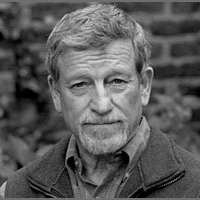Michael Scammell
| Michael Scammell | |
|---|---|

Michael Scammell (ca. 2009)
|
|
| Born | 1935 Lyndhurst, Hampshire, England |
| Occupation | author, biographer, translator |
| Language | English |
| Nationality | British, American |
| Ethnicity | British |
| Education | PhD in Slavic Studies from Columbia University |
| Alma mater | B.A. in Slavic Studies, University of Nottingham |
| Period | 1965 – present |
| Notable awards | Los Angeles Times, Silver PEN, PEN/Jacqueline Bograd Weld, Spears Magazine |
| Spouse | Rosemary Nossif |
| Website | |
| www |
|
Michael Scammell (born 1935) is an English author, biographer and translator of Slavic literature.
Michael Scammell was born in Lyndhurst, Hampshire, England, attended Brockenhurst Grammar School, and after two years working as a copy boy for the Southern Daily Echo in Southampton, was drafted into the British army, spending most of his time at the Joint Services School for Linguists in Cambridge and Bodmin, where he was trained as a Russian interpreter. In 1958 he earned a B.A. degree with first class honors in Slavic Studies from the University of Nottingham, and edited the prize-winning student newspaper, The Gongster. Having spent a year teaching English at the University of Ljubljana in the former Yugoslavia, he attended graduate school at Columbia University and later obtained his doctorate in Slavic Studies.
While in graduate school, Scammell taught Russian Literature at Hunter College and began translating books from Russian. His first translation was a novel, Cities and Years, by the Soviet author, Konstantin Fedin. Having been introduced to Vladimir Nabokov, he translated two of Nabokov's Russian novels into English, The Gift and The Defense,, followed by a translation of Crime and Punishment by Fyodor Dostoyevsky.
After moving back to England in 1965, Scammell translated Childhood, Boyhood and Youth by Lev Tolstoy and a detective novel, Petrovka 38, by the Soviet author, Yulian Semyonov. Two years later he joined the External Services division of the BBC as a Language Supervisor for East European Languages, and after becoming interested in the plight of Russian dissidents, translated a memoir about the post-Stalin gulag, My Testimony, by a former prisoner, Anatoly Marchenko. Together with the Slovenian poet, Veno Taufer, whom he met at the BBC, he also translated a selection of modern Slovenian poetry for a special issue of Modern Poetry in Translation. Many years later, he and Taufer translated a selection of poems by Slovenia's premier modern poet, Edvard Kocbek, under the title, “Nothing Is Lost.”
...
Wikipedia
